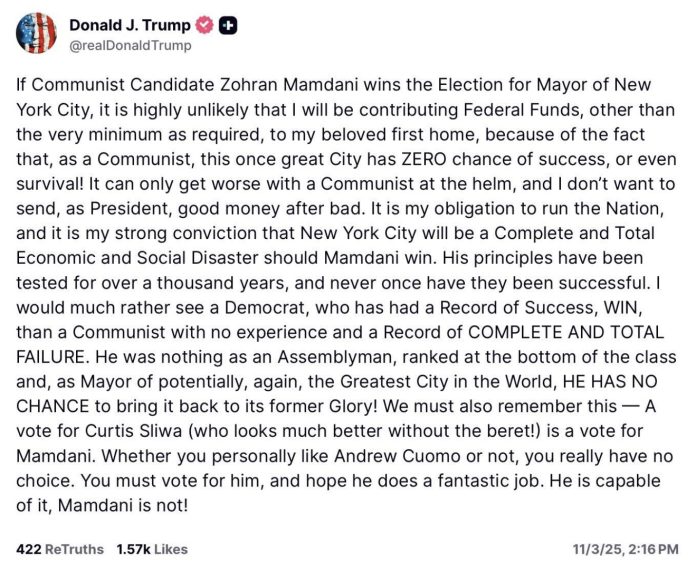New York, NY — As voters head to the polls today, questions about democracy’s boundaries have resurfaced—this time with help from artificial intelligence.
An AI-driven ethics analysis flagged a social-media post allegedly shared by former President Donald Trump as potentially “undemocratic and coercive,” after he appeared to threaten to withhold federal funds from New York City if voters elected progressive candidate Zohran Mamdani as mayor.
According to the system’s findings, the post “could constitute election interference or unethical influence over the democratic process.” While AI tools cannot determine legality, the assessment highlights a widening concern that powerful figures are using digital platforms to sway elections outside of traditional checks.
The development comes on Election Day 2025—weeks after millions of Americans joined “No Kings Day” marches across major cities calling for stronger limits on presidential power. Organizers of those rallies framed them as a warning against “authoritarian habits” in U.S. politics.
Legal scholars say the AI warning underscores how quickly technology and politics now intersect. “When algorithms begin flagging rhetoric as coercive, it tells us the system itself recognizes patterns of manipulation,” said one Georgetown University analyst.
Trump’s campaign has not commented on the analysis. Supporters have dismissed similar criticism as censorship, while critics say the former president’s language has become increasingly aggressive toward perceived opponents.
On social media, the flagged post reignited debate over digital ethics and electoral integrity at a moment when both voters and machines are parsing truth from influence in real time.
As polls close tonight, one question hangs over the nation: if even AI can detect threats to democratic norms, will Americans still recognize them when they vote?





